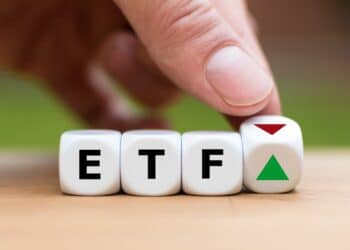Smart beta is set to disrupt the Australian funds management industry and displace active equities managers, with many charging too much for the relatively poor outcomes they provide.
This was the finding of a new VanEck research paper, When are fees too high? The potential impact of smart beta to disrupt active Australian equity strategies. The analysis found that most Australian fund managers don’t add value to the portfolios they manage, benchmark hugging as many of them do.
Most Australian equity funds should be charging management fees of between 0.35 per cent p.a. and 0.65 per cent p.a. given the ‘alpha’ that they provide to investors, according to the analysis. Yet many active managers charge management fees at least double that.
VanEck’s analysis reveals most of the performance of Australian equities managers can be explained by factors, the very same factors used in smart beta strategies. As a result, 65 per cent of those managers will potentially be displaced by smart beta strategies, as institutional investors walk away from benchmark-hugging active managers and insource investment management and/or employ smart beta approaches in the pursuit of better investment outcomes.
INVESTORS VOTING WITH THEIR FEET ON FEES
These conclusions are reinforced by the growing number of superannuation funds that have insourced investment management as funds under management grow, including Australia’s largest pension fund, AustralianSuper.
Other superannuation funds that now have their own investment teams include First State Super, Sunsuper, QSuper, REST, CBus, Vision Super, HESTA and Telstra Super.
Many funds have removed mandates from underperforming active managers with the aim of maximising returns for members and lowering costs. The nation’s sovereign wealth fund, the Future Fund, also undertakes its own asset management rather than outsource.
Retail investors, too, are questioning the high fees they are sometimes charged. Large-cap Australian shares managed funds charged fees from 0.35 per cent to 2.05 per cent in 2018, with the average around one per cent, according to analysis by Canstar. Small to mid-cap managed funds fees averaged 1.27 per cent but were as high as 2.5 per cent.
Small differences in fees can have a large impact on your returns in the long run. On a $50,000 investment, an investor in a managed fund who is charged management fees of 2.5 per cent a year would be required to fork out $1,250 a year on fees.
NO BANG FOR YOUR BUCK?
Given intense competition in the investment management industry, and a demand for better investment outcomes given rampant underperformance, only those active managers who can demonstrate identifiable and persistent ‘real’ alpha will prevail, according to VanEck. If this can’t be achieved, then investors will continue to question the fees they are being charged and inevitably, Australian equity managers that continue to offer benchmark-like performance for high fees will be displaced by smart beta strategies.
The underperformance of active managers is backed by S&P Dow Jones Indices research. Its SPIVA Australia Scorecard recently found that over the one-year period ending
December 2018, 86.7 per cent of large-cap equity funds and 98.4 per cent of bond funds in Australia underperformed their benchmarks on an absolute basis.
On an absolute and risk-adjusted basis, 86.7 per cent of funds failed to outperform the benchmark. Over the five- and 10-year periods, 79.6 per cent and 83.2 per cent of funds underperformed the S&P/ASX 200 on an absolute basis, respectively, the scorecard found.
The SPIVA Australia Scorecard also noted consistent underperformance by the majority of Australian active funds in most categories over five, ten, and 15-year periods.
This has been one reason passive investments such as exchange traded funds (ETFs) have grown in popularity. Investors no longer want to pay high fees for poor performance.
Morningstar highlighted this, as chart one illustrates, with investors funds moving away from actively managed funds to passively managed funds.
THE RISE OF SMART BETA
In separate research, published in the CFA (Chartered Financial Analyst) Institute’s Investments Analysts Journal by Ronald Kahn and Michael Lemmon, The Asset Manager’s
Dilemma: How Smart Beta is Disrupting the Investment Management Industry, the authors state: “We believe that smart beta is a disruptive innovation with the potential to significantly affect the market for investment products, particularly traditional active products.”
In their paper Kahn and Lemmon compared, what they called, ‘pure alpha’ being generated by global active managers to the fees they were charging. ‘Alpha’ is financial industry jargon for outperformance above the market benchmark. The ‘pure alpha’ the authors refer to is the alpha that cannot be explained by smart beta factors. A fund manager’s outperformance can be broken down as chart two shows.
In order to survive, active managers need to evolve. Kahn and Lemmon recommend that in order for active managers to evolve, they must assess their smart beta performance and the pure alpha they offer and charge fees accordingly.
Asset owners and fund managers, we think, will expand their offerings to include the factors which make up their current processes.
It is possible to ‘port-out’ that part of performance which can be explained by factors to create investible product solutions to compete with existing providers. Asset owners and fund managers, we think, will respond and expand their offerings to include the factors which make up their current processes.
The Australian funds management industry is set for a shake-up. Overall, the rise of smart beta will lead to investors having greater choice, greater transparency and lower costs.
Arian Neiron is the Managing Director – Head of Asia Pacific, VanEck





